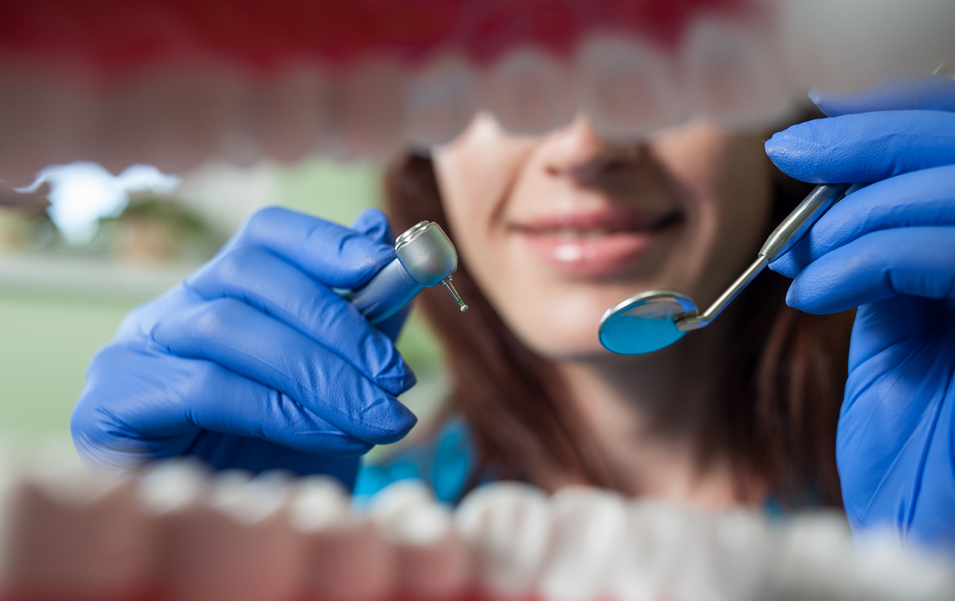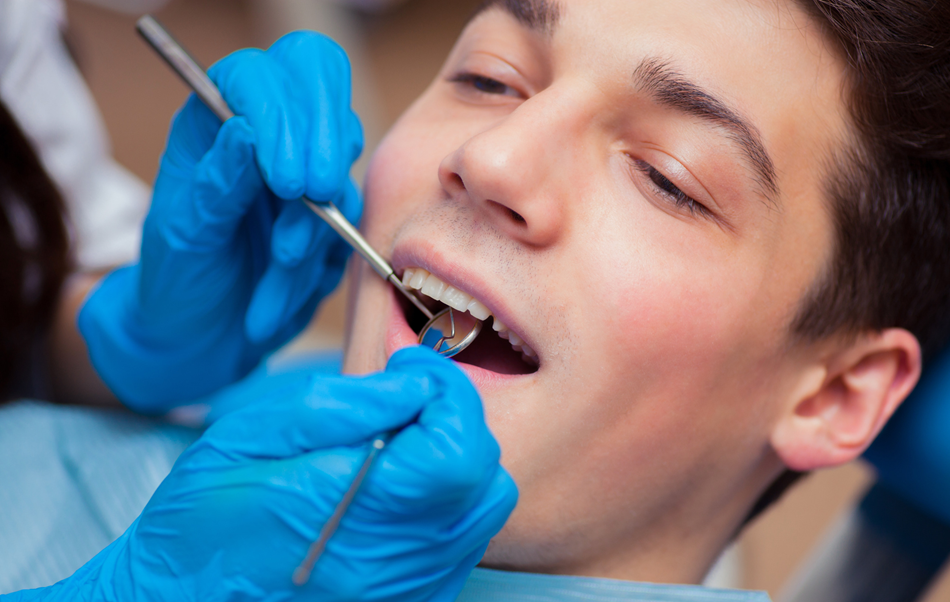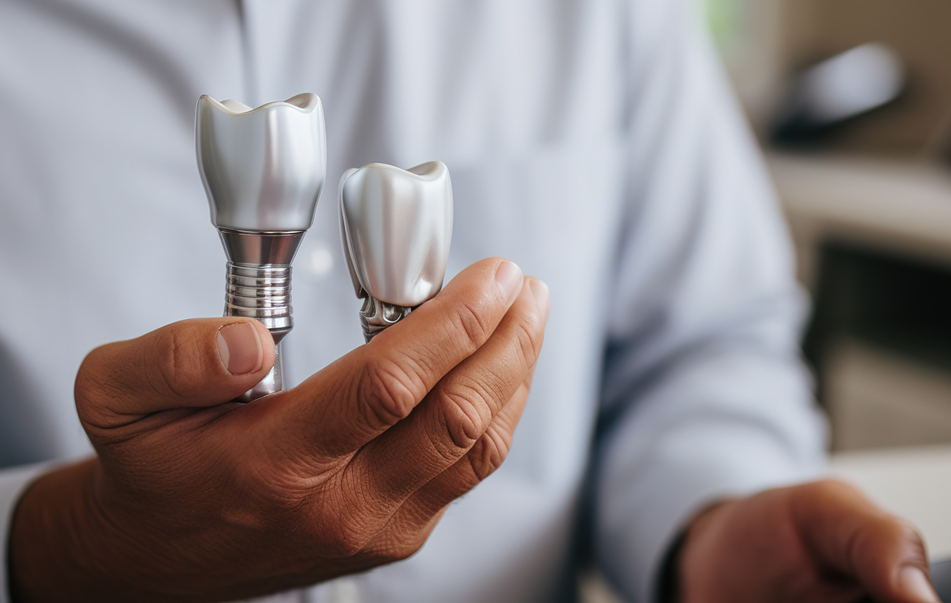Understanding the Risks and Causes of Dental Implant Failures
 Admin - Prosthodontics
Admin - Prosthodontics
 Feb 18, 2024
Feb 18, 2024
Risks and Causes of Dental Implant Failures
Dental implants are a type of surgery that can greatly improve the quality of life for those with missing teeth, providing strong, secure anchors for artificial replacements. These metal posts are integrated into the jawbone by dental professionals and have a noteworthy success rate. Nonetheless, failures do happen, with estimates indicating a failure rate of 5 to 10 percent soon after the procedure or even years down the road. Before undergoing dental implant surgery or if you’re currently living with an implant, it’s crucial to be aware of the potential for failure and the factors that contribute to it.
Key Influences on Dental Implant Outcomes
The chances of success with dental implants are contingent on multiple variables, including
Presence of Gum Disease
Gum health is paramount when considering dental implant surgery. Active gum disease, which leads to damage to both gums and the jawbone, can propagate around the implant site and precipitate failure. It is essential to address and resolve any gum disease before opting for implant surgery.
Smoking Habits
The healing of gums is compromised in smokers due to inhibited blood flow. This can significantly increase the risk of implant failure, with studies indicating failure rates as high as 20 percent in smokers. While smoking is not an outright disqualification for dental implants, cessation of smoking at least one week before the procedure and throughout the following two months can enhance outcomes.
Adequate Jawbone Support
The bone density of the jaw is also a significant factor. The implant needs enough bone to anchor securely. Conditions such as osteoporosis, which affects bone density, or severe gum disease leading to jawbone degradation, can prevent successful implantation.
Overall Health and Medications
Overall wellness impacts dental implant success, especially concerning autoimmune diseases, diabetes, or rheumatoid arthritis, which slow down the body’s healing capabilities. Implant integration with the jawbone may be inhibited in these cases. Certain medications may also affect the implant’s ability to fuse with the jawbone, with some research linking heartburn medications and antidepressants to reduced bone growth.
Oral Hygiene Practices
Post-procedure oral hygiene is critical for keeping the implant area clean and free from infections. Physical limitations impeding the ability to maintain oral hygiene can make someone unsuitable for an implant.
Surgeon’s Expertise
The experience and skill level of the surgeon plays a vital role. An improper number of implants or inaccurate placement by an inexperienced surgeon can lead to undue stress on the implants and subsequent failures. Selecting a seasoned oral surgeon who can offer a detailed plan and recovery process is essential.
Questions to Ask Your Dental Professional
During your consultation, obtain clarity by asking pertinent questions
What is the extent of the surgeon’s experience in performing dental implants?
How frequently does the surgeon carry out implant procedures annually?
Can the surgeon provide their success rates and explain the contributory factors?
By choosing an experienced dental professional and understanding the risks involved, you can take proactive steps to ensure the best outcome for your dental implant surgery. As with many medical procedures, knowledge, preparation, and a skilled provider are the cornerstones of success.
Preventive care
Even though some dental implant failures can’t be prevented, you can take steps to reduce the risk of failure:
Properly care for your dental implants. Brush and floss daily and use mouthwash.
Visit a dentist every six months.
Stop smoking.
Increase your calcium intake to support strong bones. Take a supplement or eat calcium-rich foods like milk, yogurt, broccoli, oranges, and cheese.
Ask your dentist about a mouth guard to treat bruxism (teeth grinding).
Don’t get immediate tooth replacement after an implant procedure.
Avoid habits that damage the teeth (eating ice and candy)
Dental implant alternatives
A dental implant can restore a smile, but this procedure isn’t right for everyone. Alternatives to consider include:
Dental bridge
This is a fixed prosthetic device used to fill gaps of missing teeth. A dental bridge might be appropriate for adolescents whose bones are still growing. There are a few types of dental bridges:
Resin-bonded bridge
Also known as a Maryland bridge, it consists of a fake tooth with “wings” on either side of it. The wings are affixed with resin to existing teeth on either side of the gap in the mouth. This type doesn’t require teeth to be ground down or prepared the way that a traditional bridge would.
Traditional bridge
A fixed-bridge also uses existing teeth as supports to a fake tooth. In this case the fake tooth is “bridged” using crowns on the existing teeth on either side of the gap it’s filling. Because existing teeth are capped, this type of bridge is considered sturdier than resin-bonded bridges.
Cantilever bridge
This bridge supports the fake tooth on one side only. Otherwise it’s the same as a traditional bridge, using and capping an existing tooth to support the fake one.
Removable partial dentures
This is a removable replacement for missing teeth and a cheaper alternative to a dental implant.
With a partial denture, one or more replacement teeth are affixed to a gum-colored plastic base that attaches to natural teeth. It sits in the mouth similar to a retainer tray. Complete or full dentures are needed when all teeth are missing.
Preparation as the best prevention
Dental implants have a high success rate, but they can fail for several reasons
It’s important to know the potential risks so you can take steps to improve your odds of success. This includes seeking treatment for any gum or bone problems prior to surgery, selecting an experienced surgeon, and practicing good oral hygiene before and after surgery.
Trending News
-

New Device Detects Gingivitis Early Admin
-

Non Toxic Dental Fillings : BPA, BHT, HMBP, DPCL, TPSb, HEMA, TEGDMA Free Admin
-

Essential Questions for Your Oral and Maxillofacial Surgeon Admin
-

Why Root Canals Fail? | The Usual Suspects Meredith Y. Newman Endodontist Fresno
-

Exploring Dental Implants as a Tooth Replacement Option Admin
